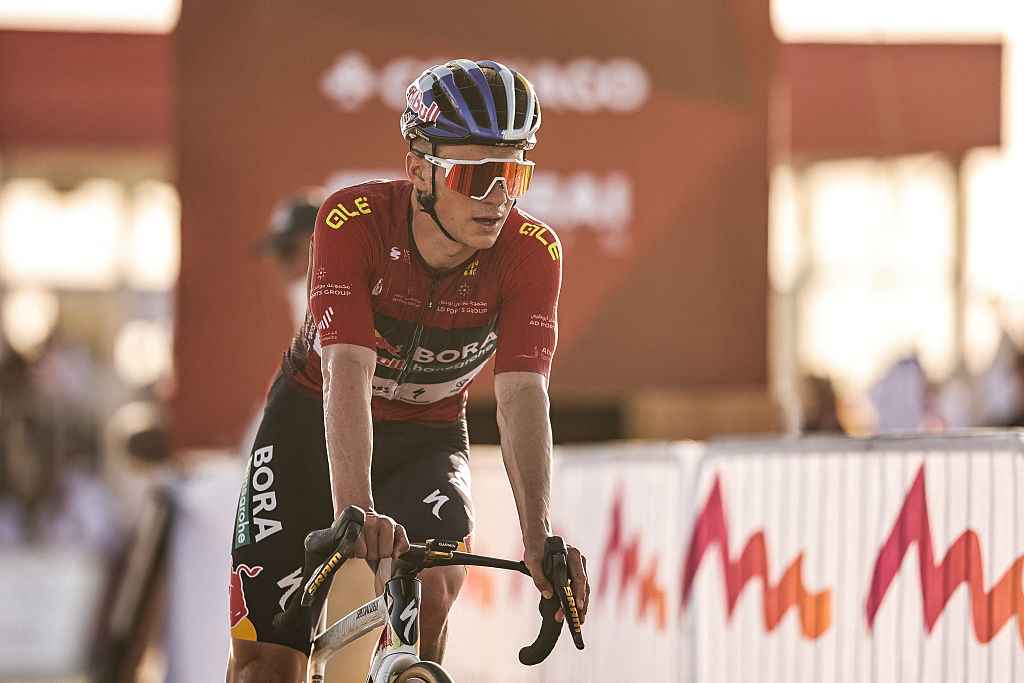USA Cycling increasing collegiate focus
By Mark Zalewski, North American Editor It is not difficult to see that there are many differences...
The latest race content, interviews, features, reviews and expert buying guides, direct to your inbox!
You are now subscribed
Your newsletter sign-up was successful
By Mark Zalewski, North American Editor
It is not difficult to see that there are many differences between cycling in the U.S. and across the pond - not least of which is how young riders develop into professionals. While chances for racing as a junior or espoir abound in Europe, the opportunities in the U.S. have been historically much slimmer. However, there are some differences that could actually be beneficial for developing new talent in the U.S. - namely the higher education system. USA Cycling (USAC) just announced that a new position has been created to significantly develop collegiate cycling opportunities in the U.S. for both men and women.
The National Collegiate Cycling Association (NCCA) is the arm of USAC that governs collegiate cycling. Since it is not a NCAA varsity sport, the millions of dollars that flow through big-time college athletic departments are not available to college cycling teams. To date, the NCCA has been more of a secondary focus for USAC, only partially led by people in the organization in their spare time. "We've always taken it seriously," said Andy Lee, USAC's communication director.
"It's just a matter of putting someone in charge of growing that aspect of the sport. We finally have the resources to increase that market. One of USAC's initiatives is to grow the collegiate side in terms of membership and development. One of the challenges the sport has is keeping the development flowing."
"I've been trying for the last couple of years to put more into collegiate cycling," explained USA Cycling's CEO Gerard Bisceglia. "We've had some nice growth, but it's been people doing it on the side or as volunteers. I really believe it's going to take someone thinking every day on how to make collegiate cycling more relevant."
The growth refers to is about 250 teams nationwide. And while that is an increase, taking into account the high rate of turnover that comes with college programs means the sustainability is less. "The other thing we have to look at is creating perpetuity," said Bisceglia. "When riders graduate teams often fall by the wayside."
That is where this new role will focus a lot of attention. "It will never be a 'mainstream' sport because it's not a NCAA sport," said Lee. "But at the collegiate level, it can be a big club sport. Right now, a lot of teams were started by one or two people. And we want more support from the university level. This person is going to have a hand in all sorts of things, helping with events, recruiting athletes. This year we had just over 800 start at the three national championships."
The latest race content, interviews, features, reviews and expert buying guides, direct to your inbox!
One of the by-products of moving from high school to college in America is the exponential decrease in athletic opportunities, which Bisceglia says is an opportunity to bring new athletes into cycling. "The competition level gets much more narrow from the jump high school to college. And there are a lot of talented athletes out there not playing varsity sports."
The hope for Bisceglia and USAC is that a richer collegiate system will produce a larger crop of elite athletes - allowing junior riders that also want to pursue their education a chance to keep developing and to bring new athletes into cycling as well. "I think it is a great for development of elite athletes," he said.
In addition, collegiate cycling is a key component in producing elite female cyclists. "I think it is the most fundamental proving ground for women, especially for elite identification," Bisceglia said. "A lot of the current women did not pick up the sport until really late. I love that it's men and women competing on the same team.
If all goes as planned, college cycling could do what no trade team can - derive sustainability using what other big-time college sports use - school spirit. "I love that [the team-mates] are all rooting for each other," said Bisceglia. "They bring their own crowds - the entire team shows up at the beginning of the day and stay for everyone's race. And from an American sports standpoint, you are rooting for your school or town instead of a trade team."
Click here for more information about the position with USAC.

